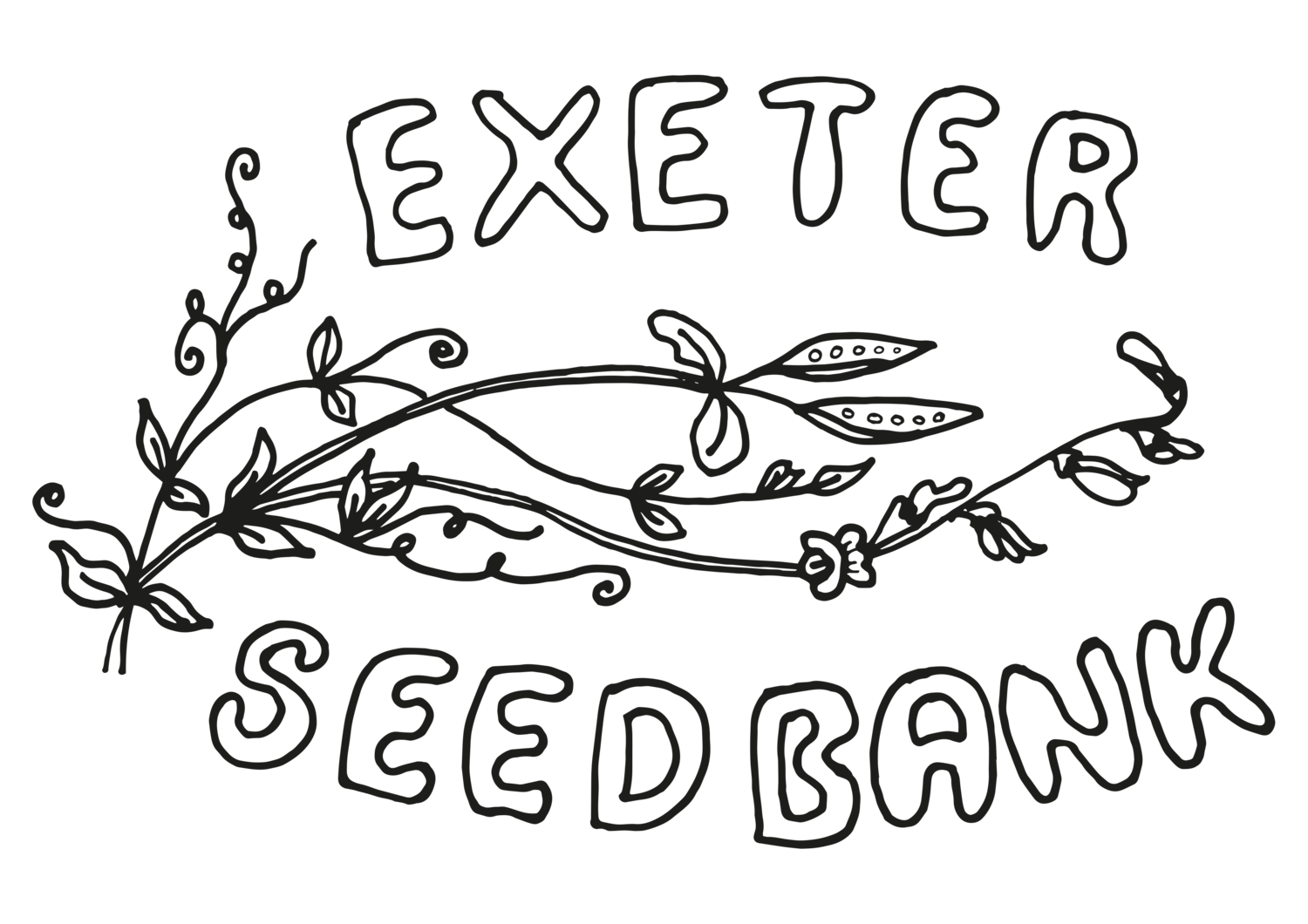Wildflower meadow mother seed for Exeter
Inspired by the Harrisons’ ‘Endangered Meadows of Europe’ project *
98% of our wildflower meadows are gone. This biodiversity supports our bees and other insect life which pollinate plants and provide food for animals such as birds. We need to work together to bring these plant species back.
This is a meadow pot for the community. Wildflower seed is added to the pot by collecting seeds that have been saved. It is then redistributed to anyone who would like them.
We would like to encourage people to collect wildflower seed whether in their own garden, park or growing in a crack in the pavement. With the collected seed, we can support the natural process of spreading them around to new locations perhaps as birds would.
Always leave plenty to fall naturally where you find it so that it can reseed and grow in that spot next year.
Hang the collected seed pods upside down in a paper bag to dry the seeds. We will be popping up with the meadow pot to collect seeds and will let you know when and where that is happening on our website and social media.
‘The ancient meadows still remaining are part of our cultural heritage and history, some of them are as old as medieval cathedrals.’ Moor Meadows
For local and national resources of information on wildflower meadows including stockists, check our Resource page.
*The Story of the Endangered Meadows of Europe project
Artists Newton and Helen Mayer Harrison have been pioneers of the ecological art movement since 1969. Their wide-ranging practice has been dedicated to creating art that benefits the ecosystem. In 1994 they moved a 400-year-old meadow that was to be bulldozed to the roof of the national museum in Bonn. The 0.8 hectares of meadow stayed there for two years. It held 164 species of wild meadow flowers and grasses. Seed was collected from the meadow and ‘A mother meadow for Bonn’ was planted at another site. This meadow continues to provide seed for new meadows planted in cities up and down the Rhine.

